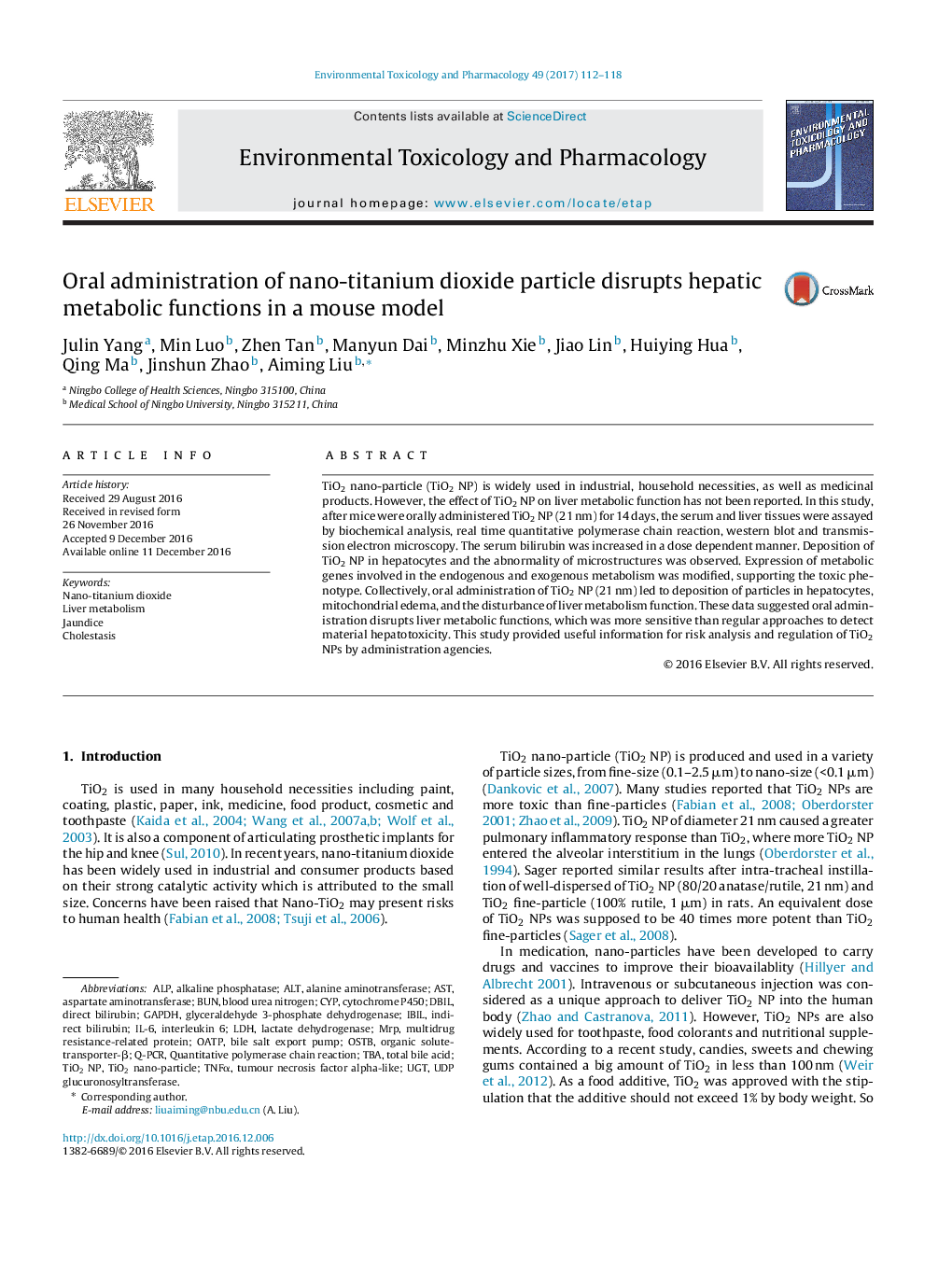| Article ID | Journal | Published Year | Pages | File Type |
|---|---|---|---|---|
| 5559870 | Environmental Toxicology and Pharmacology | 2017 | 7 Pages |
â¢Orally administered TiO2 NP deposits in cytoplasm of hepatocytes and disrupts liver metabolism function.â¢Metabolism assay is a sensitive approach to test toxicity potential of Nano-TiO2.â¢Dose-response relationship revealed help risk analysis and regulation of Nano-TiO2.
TiO2 nano-particle (TiO2 NP) is widely used in industrial, household necessities, as well as medicinal products. However, the effect of TiO2 NP on liver metabolic function has not been reported. In this study, after mice were orally administered TiO2 NP (21Â nm) for 14Â days, the serum and liver tissues were assayed by biochemical analysis, real time quantitative polymerase chain reaction, western blot and transmission electron microscopy. The serum bilirubin was increased in a dose dependent manner. Deposition of TiO2 NP in hepatocytes and the abnormality of microstructures was observed. Expression of metabolic genes involved in the endogenous and exogenous metabolism was modified, supporting the toxic phenotype. Collectively, oral administration of TiO2 NP (21Â nm) led to deposition of particles in hepatocytes, mitochondrial edema, and the disturbance of liver metabolism function. These data suggested oral administration disrupts liver metabolic functions, which was more sensitive than regular approaches to detect material hepatotoxicity. This study provided useful information for risk analysis and regulation of TiO2 NPs by administration agencies.
